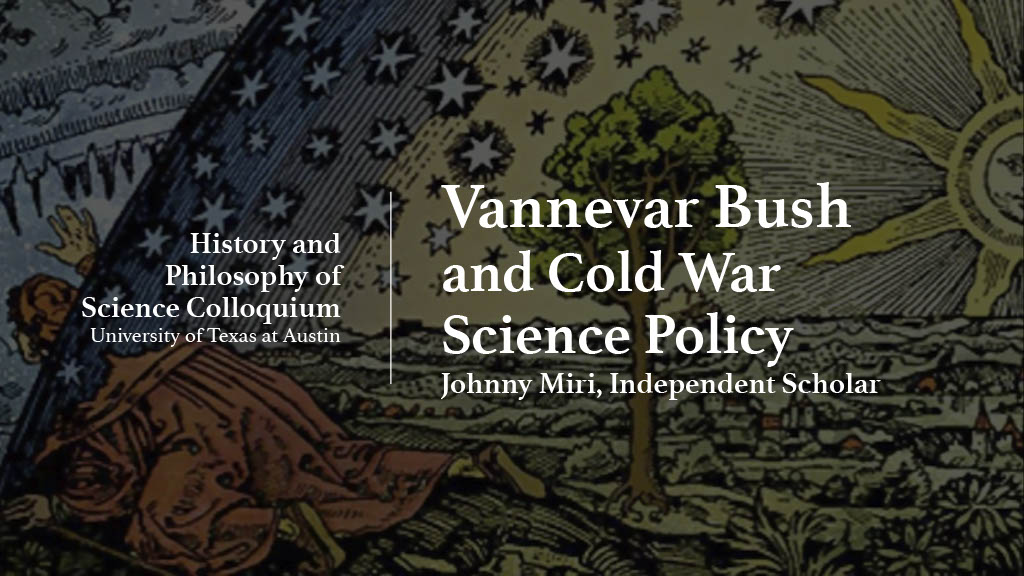
This talk took place on Friday March 26, 2021
Vannevar Bush is best remembered for his leadership of American military research during World War II, overseeing the creation of such formidable technologies as the atomic fission bomb, radar, and the proximity fuse. In the closing stages of the war, Bush prepared the groundbreaking report Science: The Endless Frontier, outlining his vision for America’s postwar scientific organization. Yet in the years immediately following Allied victory, Bush experienced a rapid fall from power, leaving government service entirely in 1948. In this talk, I will examine the various factors that led to Bush’s decline, specifically his loss of powerful allies, political missteps, and feuds with the military. The story of Bush’s fall provides a backdrop for a careful consideration of the postwar trend of institutionalization of American science policy. I argue that this shift was more gradual than previously assumed, and that postwar institutions were shaped by the personal networks that preceded them. Finally, I discuss some of the broader implications of Bush’s fall, especially the rise of military patronage of American science.
Speaker
Johnny Miri is an independent scholar living in Austin, whose interest in the field began at the Lone Star History of Science Group. His research focuses on the history of American science in the mid-20th century, particularly the interim years between World War II and the Cold War. His first scholarly article is forthcoming in the September 2021 issue of Historical Studies in the Natural Sciences.
This event is part of the History and Philosophy of Science weekly talk series, which will be held virtually during Spring 2021.
The views and opinions expressed in this article or video are those of the individual author(s) or presenter(s) and do not necessarily reflect the policy or views of the editors at Not Even Past, the UT Department of History, the University of Texas at Austin, or the UT System Board of Regents. Not Even Past is an online public history magazine rather than a peer-reviewed academic journal. While we make efforts to ensure that factual information in articles was obtained from reliable sources, Not Even Past is not responsible for any errors or omissions.



